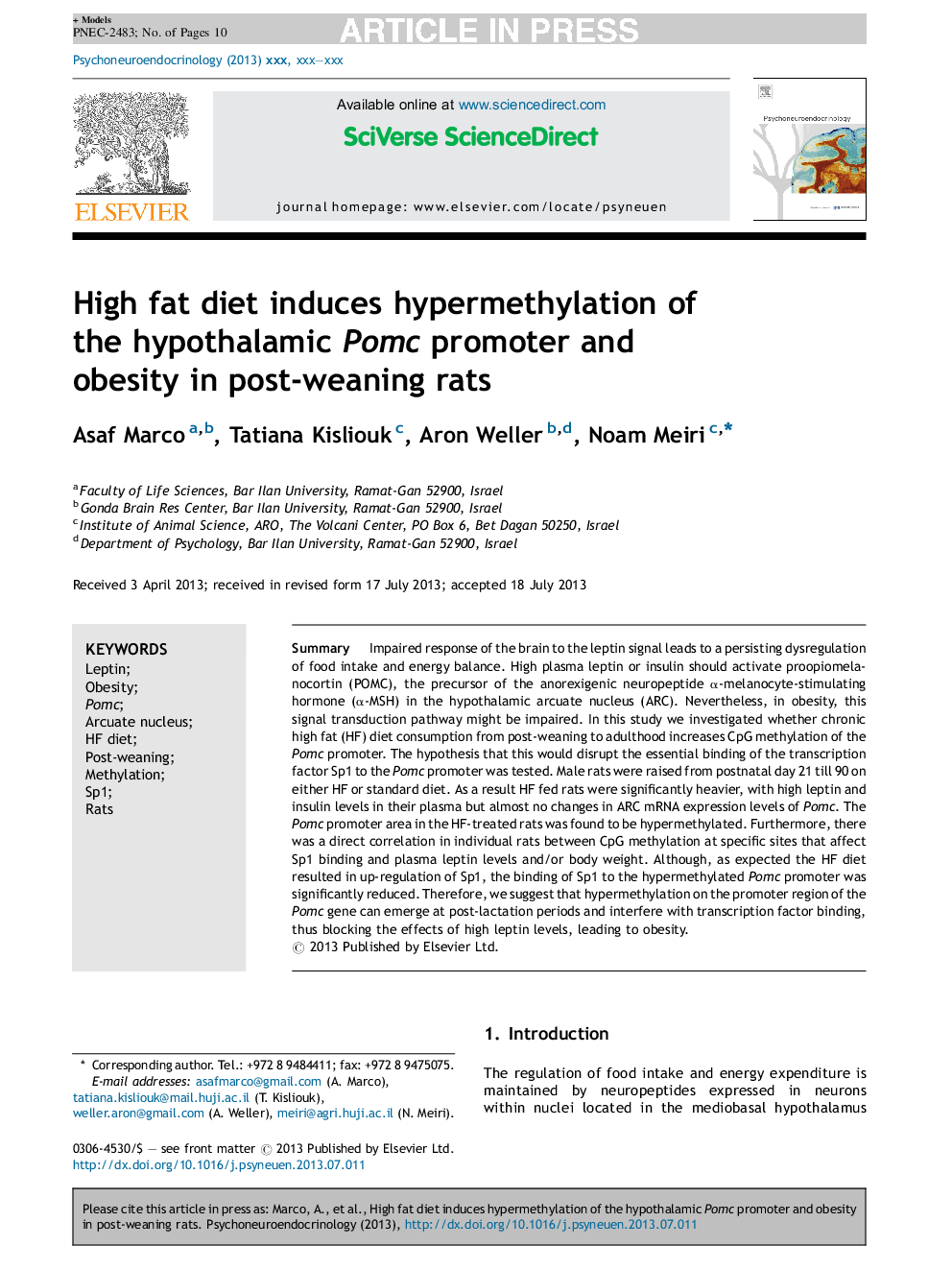| Article ID | Journal | Published Year | Pages | File Type |
|---|---|---|---|---|
| 10305740 | Psychoneuroendocrinology | 2013 | 10 Pages |
Abstract
Impaired response of the brain to the leptin signal leads to a persisting dysregulation of food intake and energy balance. High plasma leptin or insulin should activate proopiomelanocortin (POMC), the precursor of the anorexigenic neuropeptide α-melanocyte-stimulating hormone (α-MSH) in the hypothalamic arcuate nucleus (ARC). Nevertheless, in obesity, this signal transduction pathway might be impaired. In this study we investigated whether chronic high fat (HF) diet consumption from post-weaning to adulthood increases CpG methylation of the Pomc promoter. The hypothesis that this would disrupt the essential binding of the transcription factor Sp1 to the Pomc promoter was tested. Male rats were raised from postnatal day 21 till 90 on either HF or standard diet. As a result HF fed rats were significantly heavier, with high leptin and insulin levels in their plasma but almost no changes in ARC mRNA expression levels of Pomc. The Pomc promoter area in the HF-treated rats was found to be hypermethylated. Furthermore, there was a direct correlation in individual rats between CpG methylation at specific sites that affect Sp1 binding and plasma leptin levels and/or body weight. Although, as expected the HF diet resulted in up-regulation of Sp1, the binding of Sp1 to the hypermethylated Pomc promoter was significantly reduced. Therefore, we suggest that hypermethylation on the promoter region of the Pomc gene can emerge at post-lactation periods and interfere with transcription factor binding, thus blocking the effects of high leptin levels, leading to obesity.
Related Topics
Life Sciences
Biochemistry, Genetics and Molecular Biology
Endocrinology
Authors
Asaf Marco, Tatiana Kisliouk, Aron Weller, Noam Meiri,
